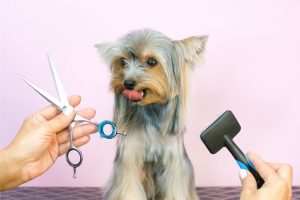
Choosing the right veterinary surgeon for your pet is crucial for their well-being. It could mean the difference between a successful surgery and a botched one. With so many factors to consider – experience, qualifications, and even costs – where should you start? This comprehensive guide will help you find the perfect fit for your furry friend.
Understanding Your Pet’s Specific Needs
Before setting out to find the best veterinary surgeon, it’s essential to understand your pet’s specific needs, as not all surgeries are created equal.
Identifying the Type of Surgery Your Pet Requires
Surgical procedures for pets can be categorized into three main types: 1. Orthopedic surgery – which pertains to bones, joints, and ligament-related issues. Examples include cruciate ligament repair and fracture fixation. 2. Soft tissue surgery – which includes procedures related to the skin, muscle, and internal organs. This could be tumor removal or gastrointestinal surgery. 3. Emergency veterinary surgery – which involves procedures like wound repair, intestinal blockage removal, or anything performed on an urgent basis. Consider your pet’s age, breed, and existing health conditions to determine their specific surgery needs.
Finding a Board-Certified Veterinary Surgeon
Once you know the type of surgery your pet needs, it’s time to search for the right surgeon.
Role of Veterinary Specialist
A board-certified veterinary surgeon is a veterinarian who has gone through extensive training and assessments in their field. They’re well-equipped to handle complex surgical procedures, ensuring your pet receives the best possible care.
Importance of Board Certification and Experience
Researching and comparing the qualifications of potential veterinary surgeons will give you the peace of mind that your pet is in capable hands. Look for surgeons with a track record of successful procedures and years of experience.
Veterinary Referrals and Recommendations
Referrals and recommendations can be your best allies in finding a trusted surgeon.
Seeking Recommendations from Your Primary Veterinarian
Your primary vet is an excellent resource for suggesting qualified surgeons, as they often collaborate with local specialists.
Assessing Local Veterinary Clinics and Animal Hospitals
Local clinics and hospitals, such as small animal surgery in Columbia, TN, might offer top-notch surgical facilities and expertise. Investigate their reputations before making a decision.
Utilizing Online Veterinary Clinic Reviews
Online reviews can also prove helpful in vetting potential surgeons. Look for testimonials from pet owners who’ve utilized their services.
Pre-Surgical Consultation
A pre-surgical consultation is an opportunity for open communication between you and the surgeon.
Discussing Surgical Techniques, Risks, and Success Rates
Ask your surgeon about their approach to the surgical procedure, possible risks, and success rates. It’s essential to feel comfortable and confident in their ability to care for your pet.
Cost of Veterinary Surgery
Surgery costs are a necessary consideration, but price shouldn’t be the sole determining factor.
Evaluating Cost Considerations
Weigh the quality of care, the surgeon’s experience, and post-operative support against their fees. More experienced surgeons may charge higher rates but deliver better results.
Financing Options and Payment Plans
Many veterinary clinics offer financing options and payment plans to help alleviate the financial burden.
Post-Operative Care
Effective post-operative care is crucial to the success of any surgery and the well-being of your pet.
Understanding the Level of Support Provided by the Veterinary Surgeon
Ask your surgeon about the post-operative follow-ups, necessary medications, and any complications they’ll address.
Ensuring Proper Recovery and Follow-Up Care
Follow your surgeon’s instructions closely and schedule follow-up appointments as needed to ensure your pet’s smooth recovery.
Pet Dental Care
In addition to surgery, consider the importance of your pet’s dental health. A professional cat dentist or veterinarian specializing in dental care can help maintain your furry friend’s pearly whites and prevent oral problems down the line.
Veterinary Internal Medicine
Sometimes, pets require internal medicine specialists for diagnosis and treatment of complex medical conditions. The Veterinary Wellness Clinic of Columbia, for instance, offers various veterinary services, including diagnostics and internal medicine care.
Conclusion
Choosing the right veterinary surgeon for your pet’s specific needs is a multifaceted process. By considering their qualifications, experience, and post-operative care, you’re better equipped to make an informed decision that ensures your pet’s health and well-being.








